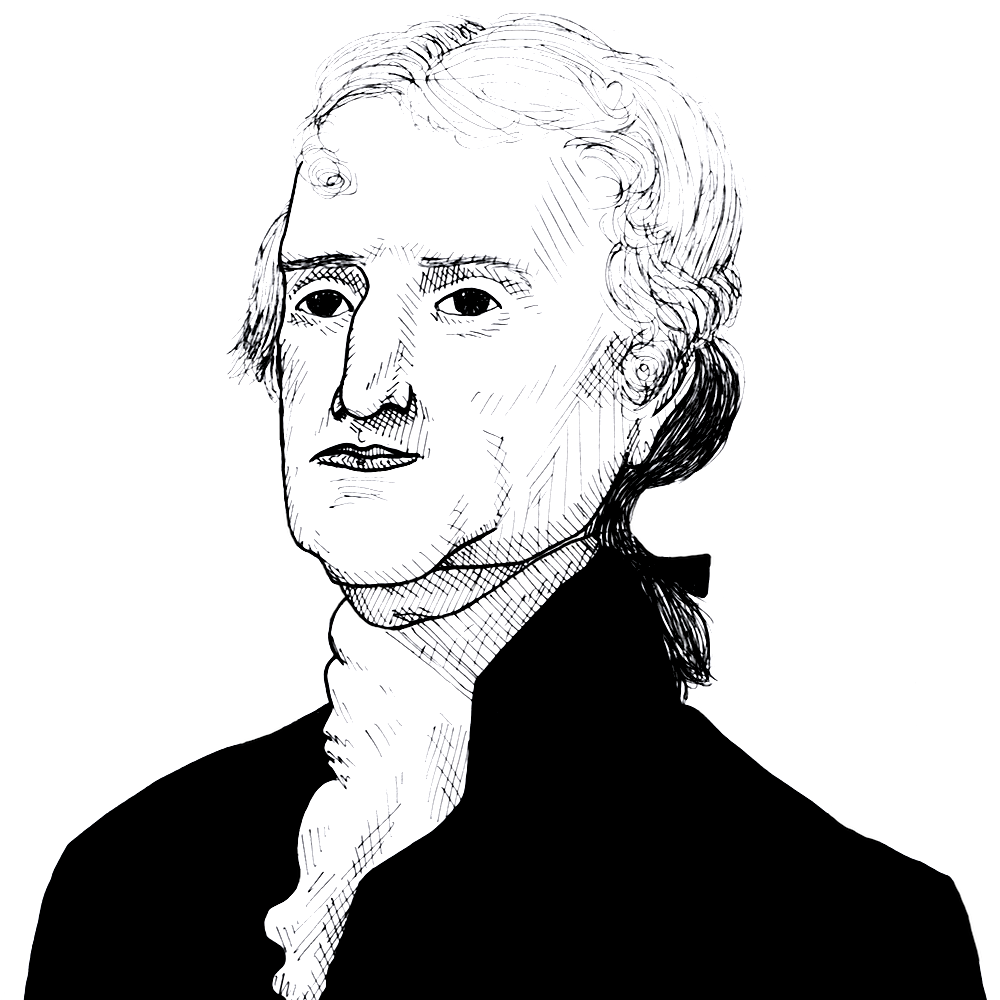
Thomas Jefferson on whether the American Constitution is binding on those who were not born at the time it was signed and agreed to (1789)
Found in: The Works of Thomas Jefferson, 12 vols.
In a letter written to James Madison from Paris just after the French Revolution had broken out, Thomas Jefferson (1743-1826) argues that any Constitution expires after 19 years and must be renewed if it is not to become “an act of force and not of right”:
Natural Rights
The question Whether one generation of men has a right to bind another, seems never to have been started either on this or our side of the water… (But) between society and society, or generation and generation there is no municipal obligation, no umpire but the law of nature. We seem not to have perceived that, by the law of nature, one generation is to another as one independant nation to another…
On similar ground it may be proved that no society can make a perpetual constitution, or even a perpetual law. The earth belongs always to the living generation…
Every constitution, then, and every law, naturally expires at the end of 19. years. If it be enforced longer, it is an act of force and not of right.